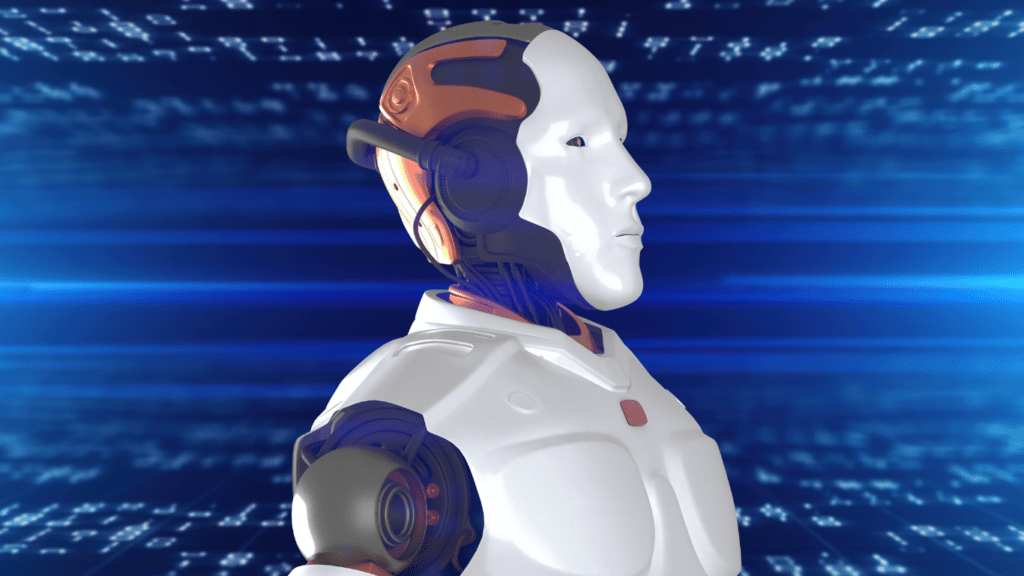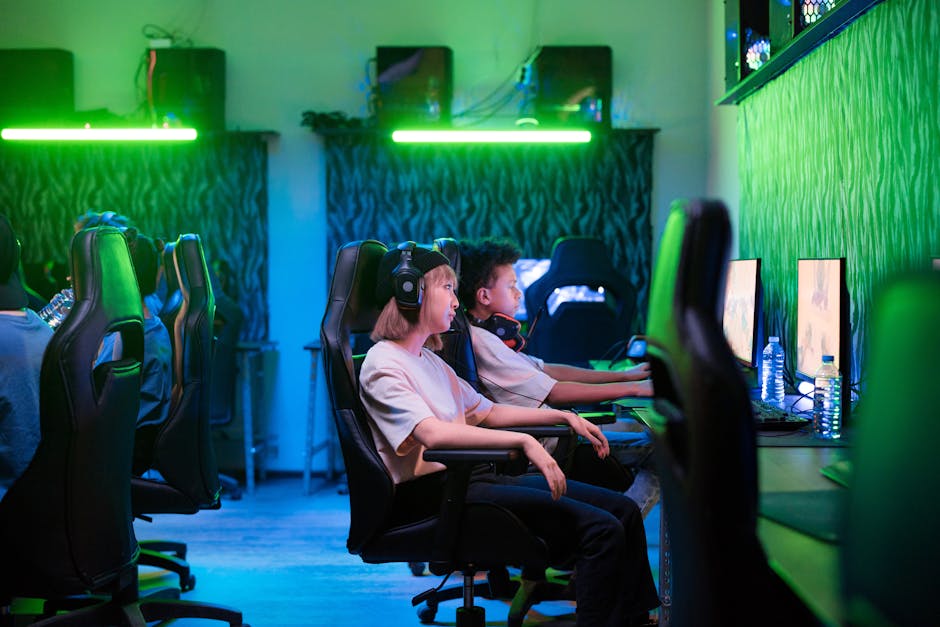As a seasoned blogger in the realm of technology and gaming, I’ve witnessed firsthand the transformative power of Artificial Intelligence (AI) in revolutionizing the landscape of game development. AI is not merely a buzzword; it’s a game-changer that’s reshaping how games are conceptualized, created, and experienced. In this article, I’ll delve into the profound impact of AI on the gaming industry, exploring the ways in which this cutting-edge technology is pushing boundaries and unlocking new possibilities for developers and gamers alike.
From enhancing in-game environments to optimizing character behaviors, AI algorithms are redefining the very essence of gameplay. As I take you on a journey through the intersection of AI and game development, you’ll discover how machine learning, neural networks, and other AI tools are propelling the industry into a new era of innovation and creativity. Join me as we unravel the fascinating ways in which AI is not just changing game development but shaping the future of interactive entertainment.
Evolution of AI in Game Development
When examining the evolution of AI in game development, it’s fascinating to witness the transition from rule-based systems to the current era driven by powerful machine learning algorithms. This shift has brought about significant advancements in how games are created and played, revolutionizing the entire gaming experience.
From Rule-Based to Machine Learning
In the earlier stages of game development, AI behavior was primarily governed by rigid rule-based systems. These systems relied on predefined guidelines and conditions to dictate how characters and entities within the game would interact. However, with the rise of machine learning technologies, game developers now have the ability to create more sophisticated, adaptive AI systems.
Machine learning algorithms enable AI to learn and improve based on data analysis and pattern recognition. This dynamic approach allows game characters to develop unique behaviors, learn from player actions, and provide a more personalized gaming experience. The shift towards machine learning has paved the way for more realistic and immersive gameplay scenarios.
Key Milestones in AI Evolution
Over the years, there have been several key milestones that have shaped the evolution of AI in game development. From early experiments with basic AI behaviors to the integration of complex neural networks, each milestone has contributed to pushing the boundaries of what is possible in game AI.
One significant milestone was the introduction of decision trees and finite state machines, which provided a structured way to define AI behavior in games. This laid the foundation for more advanced AI techniques that followed, such as neural networks and deep learning algorithms.
Another key development was the utilization of reinforcement learning, where AI agents learn through trial and error to achieve specified goals. This approach has led to the creation of AI systems that can adapt and improve over time, making gameplay interactions more dynamic and engaging.
As AI continues to evolve in the realm of game development, we can expect further innovations that will redefine the way games are created, played, and experienced. The future holds exciting possibilities as AI technology advances and integrates more seamlessly into the gaming industry.
AI-Driven Game Design

Artificial Intelligence (AI) is revolutionizing game development, pushing boundaries and unlocking new possibilities in the gaming industry. Through advanced machine learning algorithms, AI has evolved from rule-based systems to adaptive, responsive game elements that offer players unique and personalized experiences. Let’s explore two key aspects where AI is reshaping game design:
- Procedural Content Generation
AI’s role in procedural content generation is reshaping the way games are created. By using algorithms to generate content dynamically, developers can create vast, diverse worlds filled with unique challenges and surprises for players. Procedural generation not only saves time for developers but also ensures that each playthrough is fresh and engaging, providing endless replay value. Games like “No Man’s Sky” showcase the power of AI-driven procedural content generation in creating immersive, ever-expanding virtual environments. - Dynamic Storytelling and Character Development
AI’s impact on dynamic storytelling and character development is profound. Through machine learning, AI can adapt narratives based on player choices, creating a more interactive and engaging storytelling experience. Characters can now exhibit complex behaviors and evolve throughout the game, making the gaming world feel alive and responsive to player actions. Titles like “Detroit: Become Human” demonstrate how AI-driven storytelling can offer branching narratives and meaningful choices, enhancing player immersion and emotional investment in the game world.
AI’s influence on game design continues to push the boundaries of creativity and innovation, transforming the way games are developed and experienced. The future of AI-driven game design holds exciting prospects for players and developers alike, promising even more immersive, dynamic, and personalized gaming experiences.
AI in Game Testing and Quality Assurance
Incorporating Artificial Intelligence (AI) in game development has revolutionized the way testing and quality assurance are approached. Let’s delve into how AI is shaping game testing processes and ensuring top-notch quality assurance.
Automated Playtesting
Automated playtesting, facilitated by AI, streamlines the testing phase by autonomously evaluating various aspects of a game. It entails running simulations and scenarios to identify potential bugs, balance issues, and gameplay irregularities. By employing AI algorithms, developers can conduct extensive playtesting efficiently, leading to quicker bug identification and resolution.
Bug Detection and Reporting
AI plays a pivotal role in bug detection and reporting by analyzing vast amounts of gameplay data to pinpoint anomalies and glitches. Through machine learning algorithms, AI can categorize bugs based on severity, frequency, and impact on gameplay. This data-driven approach enables developers to prioritize and address critical issues promptly, enhancing the overall quality of the game.
The Impact of AI on Player Experience
AI has significantly enhanced player experience in the gaming industry. Let’s delve into how it has revolutionized personalization of gaming experiences and boosted realism and responsiveness in games.
Personalization of Gaming Experience
AI algorithms analyze player behavior and preferences in real-time, offering personalized gameplay experiences. By adapting to individual playing styles, AI enhances player engagement and satisfaction. For example, AI-driven game difficulty adjustments based on player performance ensure a challenging yet enjoyable experience for every player.
Enhanced Realism and Responsiveness
AI-powered systems enable games to deliver unprecedented levels of realism and responsiveness. NPCs (Non-Player Characters) exhibit more lifelike behavior, responding intelligently to player actions. This creates a dynamic and immersive gaming environment where player choices have meaningful consequences. Additionally, AI enhances game responsiveness by enabling quicker and more accurate in-game reactions to player inputs, resulting in seamless and fluid gameplay experiences.
Ethical Considerations and Future Directions
As we delve deeper into the realm of AI in the gaming industry, it’s essential to consider the ethical implications and potential future trajectories associated with this technological advancement.
Fairness and Privacy Concerns
In the realm of AI-driven game development, ensuring fairness and privacy is paramount. As AI systems analyze player behavior and preferences to customize gameplay experiences, there’s a risk of unintentional bias or data privacy breaches. Developers must implement robust measures to mitigate bias in AI algorithms and safeguard user data privacy throughout the gaming experience.
Predictions for AI in Future Gaming Technologies
Looking ahead, the future of AI in gaming technologies holds exciting possibilities. Predictive analytics powered by AI can revolutionize game development by anticipating player actions and preferences, creating more immersive and engaging gaming experiences. Moreover, advancements in AI can lead to the development of intelligent NPCs that offer lifelike interactions and dynamic storytelling, blurring the lines between virtual and reality. Embracing AI in game development is poised to shape the future of gaming by introducing innovations that enhance player experiences and redefine the boundaries of immersive gameplay.



